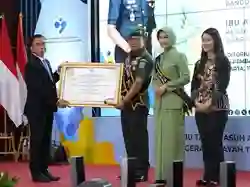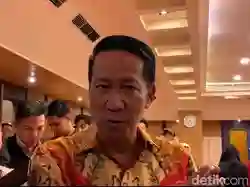One of the most elite schools in Darwin, named Essington, is set to close its Indonesian language program. The school stated to ABC that after “teaching Indonesian for so long”, they will end the program at the conclusion of the first semester in 2025.
The decision to close the Indonesian language program was based on a comprehensive review of curriculum priorities, parental feedback, and student involvement, according to a school spokesperson. “We will consult with families in early 2025 to explore language preferences. While Indonesian has been a valuable choice, Essington remains committed to equipping students with global skills.”
Luke Gosling, a local member of parliament, described it as “a significant backwards step for the government and private schools to overlook our large and strategically important neighbor.” ABC found that parents have not been consulted about the closure of the Indonesian program, and alternative languages have not been offered.
This closure at Essington follows a similar move by Scotch Collge, one of Melbourne’s most prestigious schools, earlier this year. Bayu Prihantoro, who arrived in Melbourne in mid-2023 to work as an Indonesian language assistant at Scotch, mentioned that students were enthusiastic about learning Indonesian. He said, “About 80 to 90 percent of the children are eager and happy to learn Indonesian, especially when native speakers come. But suddenly, the program was removed from the curriculum.”
The Indonesian Embassy’s Attaché for Education and Culture in Canberra, Mukhamad Najib, expressed hope that Australia would “take a more serious approach to developing Asian language learning, especially Indonesian.” He suggested that Indonesia should not be solely responsible, emphasizing Australia’s role in allocating funds for Indonesian language education.
Alistair Welsh, an Indonesian language lecturer at Deakin University, characterized the decisions to end Indonesian programs as fundamentally “ideological.” He mentioned cases where schools replaced Indonesian with languages like French, despite having staff to support the program.
Silvy Wantania, President of the Indonesian Language Teachers’ Association in Victoria (VILTA), attributed the declining interest in learning Indonesian to a perception among Australians that Indonesia is less important compared to Western or even other Asian countries. She urged for a shift in attitudes and the inclusion of contemporary Indonesian cultural aspects in teaching materials.
Despite Indonesia surpassing New Zealand as the top tourist destination for Australians in the past 12 months, a decrease in Indonesian language learning interest is evident in Australian schools and universities. Challenges include outdated teaching materials that do not reflect Indonesia’s current developments.
The report also highlights the negative public perception of Indonesia in Australia due to past events, which hinders Indonesian language education. However, educators and experts emphasize the enduring significance of Indonesia as a close neighbor and one of the world’s largest countries.

 BKKBN Kukuhkan Pangdam Cenderawasih Sebagai Duta Orang Tua Hebat Nasional
BKKBN Kukuhkan Pangdam Cenderawasih Sebagai Duta Orang Tua Hebat Nasional